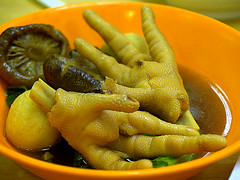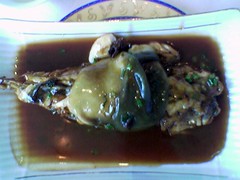By Kevin G. Hall
McClatchy Newspapers
Washington - The Bush administration and China have both undermined efforts
to tighten rules designed to ensure that lead paint isn't used in toys,
bibs, jewelry and other children's products.
Both have fought efforts to better police imported toys from China. Now,
both are under increased scrutiny after last week's massive toy recall by
Mattel Inc., the world's largest toymaker. The recalls follow several other
lead-paint-related scares since June that have affected products featuring
Sesame Street characters, Thom as the Train and Dora the Explorer.
Lead paint is toxic when ingested by children and can cause brain damage or
death. It has been mostly banned in the United States since the late 1970s
but is permitted in the coating of toys, providing it amounts to less than
six parts per million. The Bush administration has hindered regulation on
two fronts, consumer advocates say. It stalled efforts to press for greater
inspections of imported children's products, and it altered the focus of the
Consumer Product Safety Commission, moving it from protections for consumers
to a more manufacturer-friendly approach.
"The overall philosophy (of the administration) is regulations are bad, and
they are too large a cost for industry, and the market will take care of
it," said Rick Melberth, director of regulatory policy at OMBWatch, a
government watchdog group formed in 1983. Today, more than 80 percent of all
U.S. toys are made in China; few get inspected.
"We've been complaining about this issue, warning it is going to happen, and
it is disappointing that it has happened," said Tom Neltner, co-chairman of
the Sierra Club's national toxics committee.
President Bush has asked the Department of Health and Human Services to
report next month on ways to better ensure safe imports.
He also has asked the Centers for Disease Control and Prevention to consider
responses to lead-paint threats to children.
But as recently as December, the Sierra Club sued the Bush administration
after the Environmental Protection Agency rebuffed a petition to require
health-and-safety studies for companies that use lead in children's
products. The EPA and Sierra Club settled out of court in April, with the
administration agreeing to write a letter to the CPSC that expressed concern
about insufficient quality control on products containing lead.
From 1994 until 2001, Ann Brown headed the CPSC under Presidents Clinton and
Bush. She didn't push for a ban on lead in all children's products, partly
because China's rise to export prowess hadn't yet unfolded.
"Today, I would say there should be an outright ban on any lead in any toy
product," Brown, who's working with Sen. Hillary Rodham Clinton's
presidential campaign, said in an interview.




